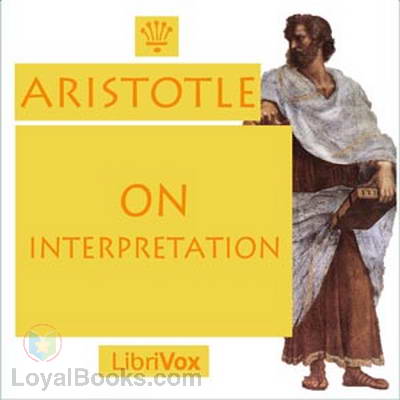
By: Aristotle (384 BC - 322 BC)
Aristotle's "On Interpretation" is a profound exploration of language and its role in communication and reasoning. In this influential work, Aristotle delves into the complexities of linguistic expression, examining the nature of words, sentences, and propositions. He discusses the various ways in which language can be used to convey meaning, including through statements of fact, opinions, and emotions.
One of the key themes of the book is the distinction between truth and falsity in language. Aristotle argues that the meaning of a statement is determined by whether it accurately reflects reality or not. He also discusses the concept of modalities, which refer to the different ways in which statements can be affirmed or denied. Through his rigorous analysis, Aristotle provides readers with a comprehensive framework for understanding the complexities of language and its relationship to truth.
Overall, "On Interpretation" is a thought-provoking and intellectually stimulating read that offers valuable insights into the nature of language and logic. Aristotle's careful reasoning and meticulous analysis make this book essential reading for anyone interested in the philosophy of language and communication. Book Description:
Aristotle's On Interpretation (Greek Peri Hermeneias) or De Interpretatione (the Latin title) is the second of Aristotle's six texts on logic which are collectively known as the Organon. On Interpretation is one of the earliest surviving philosophical works in the Western tradition to deal with the relationship between language and logic in a comprehensive, explicit, and formal way. The work begins by analyzing simple categoric propositions, and draws a series of basic conclusions on the routine issues of classifying and defining basic linguistic forms, such as simple terms and propositions, nouns and verbs, negation, the quantity of simple propositions (primitive roots of the quantifiers in modern symbolic logic), investigations on the excluded middle (what to Aristotle isn't applicable to future tense propositions — the Problem of future contingents), and on modal propositions. The first five chapters deal with the terms that form propositions. Chapters 6 and 7 deal with the relationship between affirmative, negative, universal and particular propositions. These relationships are the basis of the well-known Square of opposition. The distinction between universal and particular propositions is the basis of modern quantification theory. The last three chapters deal with modalities. Chapter 9 is famous for the discussion of the sea-battle. (If it is true that there will be a sea-battle tomorrow, then it is true today that there will be a sea-battle. Thus a sea-battle is apparently unavoidable, and thus necessary).
|
